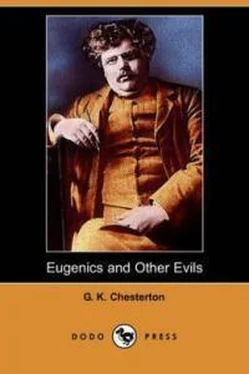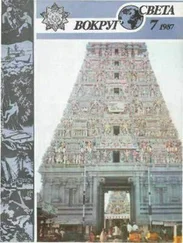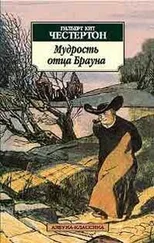Chapter VIII
The End of the Household Gods
The only place where it is possible to find an echo of the mind of the English masses is either in conversation or in comic songs. The latter are obviously the more dubious; but they are the only things recorded and quotable that come anywhere near it. We talk about the popular Press; but in truth there is no popular Press. It may be a good thing; but, anyhow, most readers would be mildly surprised if a newspaper leading article were written in the language of a navvy. Sometimes the Press is interested in things in which the democracy is also genuinely interested; such as horse–racing. Sometimes the Press is about as popular as the Press Gang. We talk of Labour leaders in Parliament; but they would be highly unparliamentary if they talked like labourers. The Bolshevists, I believe, profess to promote something that they call "proletarian art," which only shows that the word Bolshevism can sometimes be abbreviated into bosh. That sort of Bolshevist is not a proletarian, but rather the very thing he accuses everybody else of being. The Bolshevist is above all a bourgeois; a Jewish intellectual of the town. And the real case against industrial intellectualism could hardly be put better than in this very comparison. There has never been such a thing as proletarian art; but there has emphatically been such a thing as peasant art. And the only literature which even reminds us of the real tone and talk of the English working classes is to be found in the comic song of the English music–hall.
I first heard one of them on my voyage to America, in the midst of the sea within sight of the New World, with the Statue of Liberty beginning to loom up on the horizon. From the lips of a young Scotch engineer, of all people in the world, I heard for the first time these immortal words from a London music–hall song:—
"Father's got the sack from the water–works
For smoking of his old cherry–briar;
Father's got the sack from the water–works
'Cos he might set the water–works on fire."
As I told my friends in America, I think it no part of a patriot to boast; and boasting itself is certainly not a thing to boast of. I doubt the persuasive power of English as exemplified in Kipling, and one can easily force it on foreigners too much, even as exemplified in Dickens. I am no Imperialist, and only on rare and proper occasions a Jingo. But when I hear those words about Father and the water–works, when I hear under far–off foreign skies anything so gloriously English as that, then indeed (I said to them), then indeed:—
"I thank the goodness and the grace
That on my birth have smiled,
And made me, as you see me here,
A little English child."
But that noble stanza about the water–works has other elements of nobility besides nationality. It provides a compact and almost perfect summary of the whole social problem in industrial countries like England and America. If I wished to set forth systematically the elements of the ethical and economic problem in Pittsburg or Sheffield, I could not do better than take these few words as a text, and divide them up like the heads of a sermon. Let me note the points in some rough fashion here.
1.— Father. This word is still in use among the more ignorant and ill–paid of the industrial community; and is the badge of an old convention or unit called the family. A man and woman having vowed to be faithful to each other, the man makes himself responsible for all the children of the woman, and is thus generically called "Father." It must not be supposed that the poet or singer is necessarily one of the children. It may be the wife, called by the same ritual "Mother." Poor English wives say "Father" as poor Irish wives say "Himself," meaning the titular head of the house. The point to seize is that among the ignorant this convention or custom still exists. Father and the family are the foundations of thought; the natural authority still comes natural to the poet; but it is overlaid and thwarted with more artificial authorities; the official, the schoolmaster, the policeman, the employer, and so on. What these forces fighting the family are we shall see, my dear brethren, when we pass to our second heading; which is:—
2.— Got the Sack. This idiom marks a later stage of the history of the language than the comparatively primitive word "Father." It is needless to discuss whether the term comes from Turkey or some other servile society. In America they say that Father has been fired. But it involves the whole of the unique economic system under which Father has now to live. Though assumed by family tradition to be a master, he can now, by industrial tradition, only be a particular kind of servant; a servant who has not the security of a slave. If he owned his own shop and tools, he could not get the sack. If his master owned him, he could not get the sack. The slave and the guildsman know where they will sleep every night; it was only the proletarian of individualist industrialism who could get the sack, if not in the style of the Bosphorus, at least in the sense of the Embankment. We pass to the third heading.
3.— From the Water–works. This detail of Father's life is very important; for this is the reply to most of the Socialists, as the last section is to so many of the Capitalists. The water–works which employed Father is a very large, official and impersonal institution. Whether it is technically a bureaucratic department or a big business makes little or no change in the feelings of Father in connection with it. The water–works might or might not be nationalised; and it would make no necessary difference to Father being fired, and no difference at all to his being accused of playing with fire. In fact, if the Capitalists are more likely to give him the sack, the Socialists are even more likely to forbid him the smoke. There is no freedom for Father except in some sort of private ownership of things like water and fire. If he owned his own well his water could never be cut off, and while he sits by his own fire his pipe can never be put out. That is the real meaning of property, and the real argument against Socialism; probably the only argument against Socialism.
4.— For Smoking. Nothing marks this queer intermediate phase of industrialism more strangely than the fact that, while employers still claim the right to sack him like a stranger, they are already beginning to claim the right to supervise him like a son. Economically he can go and starve on the Embankment; but ethically and hygienically he must be controlled and coddled in the nursery. Government repudiates all responsibility for seeing that he gets bread. But it anxiously accepts all responsibility for seeing that he does not get beer. It passes an Insurance Act to force him to provide himself with medicine; but it is avowedly indifferent to whether he is able to provide himself with meals. Thus while the sack is inconsistent with the family, the supervision is really inconsistent with the sack. The whole thing is a tangled chain of contradictions. It is true that in the special and sacred text of scripture we are here considering, the smoking is forbidden on a general and public and not on a medicinal and private ground. But it is none the less relevant to remember that, as his masters have already proved that alcohol is a poison, they may soon prove that nicotine is a poison. And it is most significant of all that this sort of danger is even greater in what is called the new democracy of America than in what is called the old oligarchy of England. When I was in America, people were already "defending" tobacco. People who defend tobacco are on the road to proving that daylight is defensible, or that it is not really sinful to sneeze. In other words, they are quietly going mad.
Читать дальше








